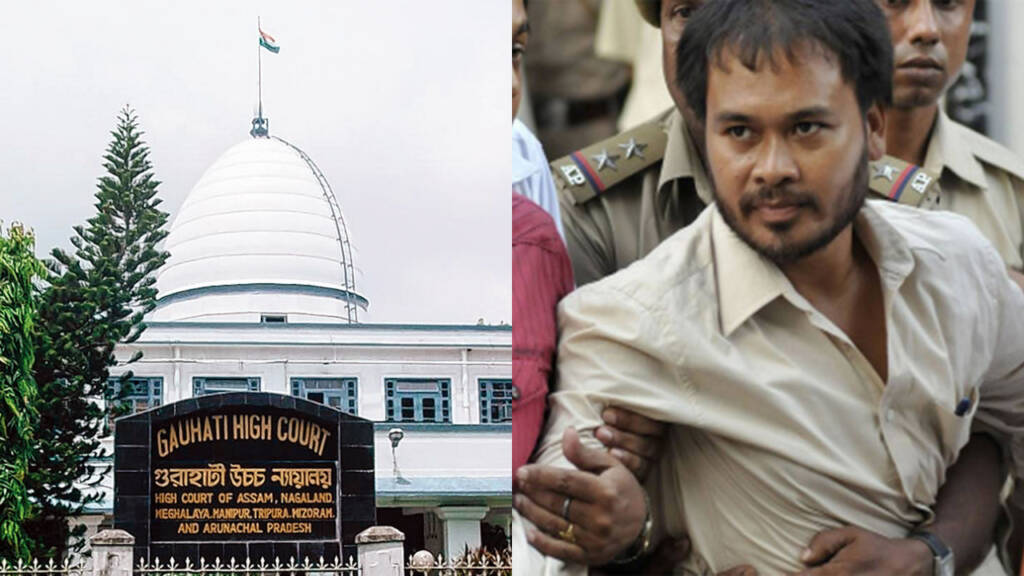Akhil Gogoi, so-called ‘peasant’ leader of Assam and Krishak Mukti Sangram Samiti (KMSS) supremo has been lodged in jail for well over a year for his terrorist-like activities in breaching public peace and order, while also instigating one community against the other during the misinformed anti-CAA agitations in December-January 2019 which engulfed the Northeast. The Gauhati High Court denied bail to Gogoi on Thursday, while also making scathing observations against the man and his ‘samiti’, which will haunt the ‘peasant leader’ all through his life and derail whatever little fortunes he had remaining politically in the state of Assam.
The Gauhati High Court’s observations against Akhil Gogoi were based on a 1200-page charge sheet filed by the National Investigation Agency (NIA) against him, in which it has been claimed that he plotted a conspiracy to stoke violence between two sections of society in Assam.
Based on the charge sheet and witness testimony, the Gauhati High Court remarked, “By use of violence, the appellant-led mob had brushed aside the noble concept of non-violent protest, which is popularly known as satyagraha and that such conduct of paralyzing the government machinery, causing economic blockade, causing enmity between groups, disruption of public peace and widespread disharmony and dissatisfaction towards the government, are acts which are prejudicial/for national integration and such acts squarely fall within the definition of “terrorist act” as defined in section 15 of the UA(P) Act.”
Effectively, Akhil Gogoi has been termed a terrorist for his nefarious activities during the fiery anti-CAA agitations which took place in the Northeast in December-January 2019. The High Court also observed that members of the Gogoi-led Krishak Mukti Sangram Samiti (KMSS) were trained by the banned CPI(Maoist) in tactics of mass mobilisation to carry out seditious activities in garb of protests. Akhil Gogoi has been slapped with UAPA charges on at least six cases registered against him.
Akhil Gogoi plotted to have the all-important and game-changing state visit of Japanese Prime Minister Shinzo Abe cancelled, and he succeeded. The visit by the Japanese PM would have ushered a new age of development and investment for India’s Northeast, but was forced to be called off due to the anti-national activities of low-lives like Akhil Gogoi.
Also, Gogoi and his supporters, according to the NIA charge sheet, were planning to burn down Bengali households in Amravati area, which is a Bengali inhabited locality in Chabua. However, this sinister plan was thwarted by the administration. Chabua in Assam itself witnessed largescale violence by Gogoi supporters, who the man instigated to use any and all means possible to teach the government a lesson.
Importantly, the Gauhati High Court also remarked that the evidence submitted to it was sufficient for Gogoi to be convicted for the charges he is faced with. The NIA charge sheet also goes on to reveal how the anti-CAA agitations were not just that but aimed at fanning social and racial strife in Assam and the region in general, which in any case is plagued with tribal vs non-tribal rhetoric.
For Akhil Gogoi to plot the specific targeting of Bengali households shows that the anti-CAA agitations were a mere stepping stone for certain supremacists of the state to weed out the Bengali population. Although people of the Assamese and Bengali communities in the state largely co-exist peacefully, the fuse wire for such peace can be shot off at any moment, which can have devastating consequences. It is, therefore, necessary that Akhil Gogoi is not allowed to leave the dark hole he is currently in.
